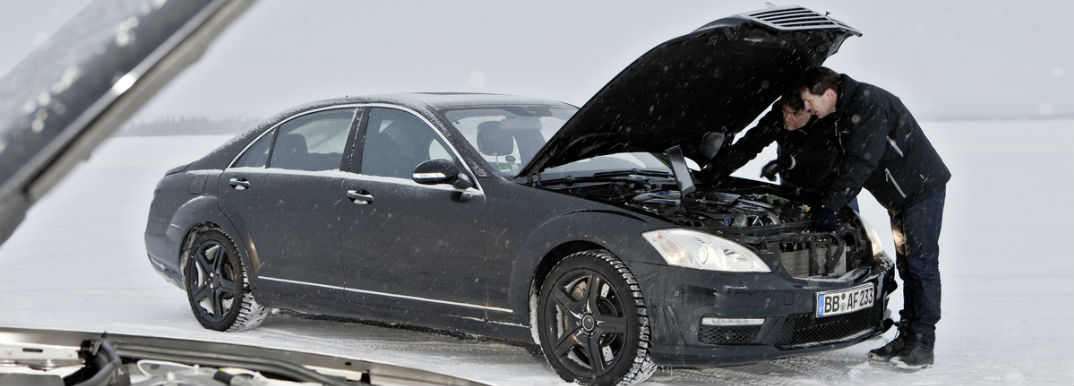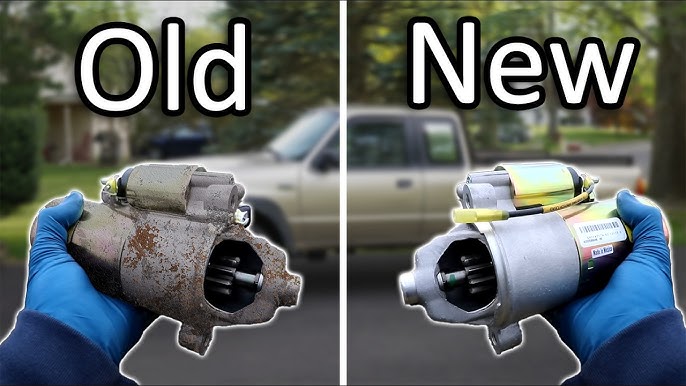A car starter typically lasts 100,000 to 150,000 miles or about 5 to 7 years before requiring replacement. However, this lifespan can vary depending on driving habits, environmental conditions, and maintenance practices. Recognizing the signs of a failing starter, such as clicking noises, an engine that won’t crank, or smoke near the starter, can save you from unexpected breakdowns and costly repairs.
In this guide, we’ll cover:
- The lifespan of a car starter
- Signs of a failing starter
- Starter replacement tips
- The risks of driving with a bad starter
- Maintenance strategies to extend your starter’s lifespan

Credit: www.yourmechanic.com
Signs of a Failing Starter
Identifying a failing starter early can prevent further damage and avoid dangerous situations. Here are the most common warning signs:
1. Clicking Noise
A clicking sound when turning the key often indicates that the starter solenoid is receiving power, but the motor isn’t engaging. Possible causes include a weak battery, corroded electrical connections, or a failing starter motor.
2. Lights But No Engine Action
If your dashboard lights up but the engine doesn’t start, the electrical system is functioning, but the starter isn’t engaging. This could be due to a faulty solenoid or damaged ignition switch.
3. Engine Won’t Crank
An engine that refuses to crank when you turn the key is a strong indication of a failing starter. Faulty components like the ignition switch or relay may also contribute to the problem.
4. Smoke or Oil Leakage
Smoke near the starter or oil leakage around it suggests overheating or a damaged oil seal. These issues should be addressed immediately to avoid further complications.
Average Lifespan of a Starter
A car starter’s longevity depends on several factors, but the average lifespan ranges between 100,000 and 150,000 starts. This equates to about 5 to 7 years of normal use. Factors influencing this lifespan include:
- Driving Habits: Frequent short trips and stop-and-go driving can strain the starter.
- Environmental Conditions: Extreme heat or cold can shorten the starter’s lifespan.
- Quality of the Starter: High-quality starters generally last longer than cheaper alternatives.
- Maintenance Practices: Regular inspections and cleaning can prolong starter life.
How to Replace a Starter
If you experience any of the following signs, it’s time to replace your starter:
- Clicking noise during startup
- Dashboard lights on, but the engine won’t start
- Smoke or oil leakage near the starter
Cost of Replacement
Replacing a car starter typically costs between $300 and $600, including parts and labor. This price varies based on your vehicle’s make and model.
DIY Replacement Tips
For those with mechanical experience, replacing a starter yourself can save money. Here are some tips:
- Disconnect the battery before starting.
- Refer to your vehicle manual for specific instructions.
- Label wires and connections for easy reassembly.
- Verify the new starter’s compatibility with your car.
The Risks of Driving With a Bad Starter
Driving with a failing starter can lead to severe consequences, including:
1. Safety Hazards
A faulty starter can cause your engine to stall in dangerous situations, such as at busy intersections or highways, increasing the risk of accidents.
2. Damage to the Engine
Repeated attempts to start the engine with a bad starter can strain the electrical system and damage other components, leading to expensive repairs.
Expert Tips for Starter Maintenance
Preventive maintenance can significantly extend the life of your starter. Follow these tips:
- Regular Inspections: Check for wear, corrosion, or loose connections.
- Clean Components: Remove dirt and debris from the starter motor and solenoid.
- Avoid Overuse: Refrain from prolonged cranking, which can overheat the starter.
- Address Issues Quickly: Replace the starter at the first sign of failure to avoid further damage.

Credit: www.mbscottsdale.com
Comparison: Starter Longevity by Vehicle Type
Different vehicles experience varying starter lifespans:
- Toyota: Reliable starters lasting around 100,000 to 150,000 miles.
- Ford: Lifespan ranges between 80,000 and 150,000 miles, depending on maintenance.
- Chevrolet: Typically lasts 80,000 to 120,000 miles.
- Trucks: Due to heavier workloads, truck starters may need replacement at 80,000 to 120,000 miles.
- Cars: Starters in lighter vehicles can last longer, around 100,000 to 150,000 miles.
Frequently Asked Questions
How Often Should a Starter Be Replaced?
Starters should be replaced every 80,000 to 150,000 miles, depending on usage and maintenance. Regular inspections can help determine the right time for replacement.
How Do I Know If My Starter Needs Replacement?
Signs include a clicking noise, dashboard lights without engine activity, or visible smoke or oil leaks.
Can I Drive With a Bad Starter?
Driving with a bad starter is unsafe and can lead to engine failure. Address the issue promptly to avoid hazards.
Conclusion
Car starters typically last between 80,000 and 150,000 miles. Proper maintenance, such as regular inspections and cleaning, can extend their lifespan. Recognizing early signs of failure and addressing them promptly ensures vehicle reliability and safety. Whether you opt for professional replacement or tackle it yourself, staying proactive about starter health can save time, money, and hassle.
